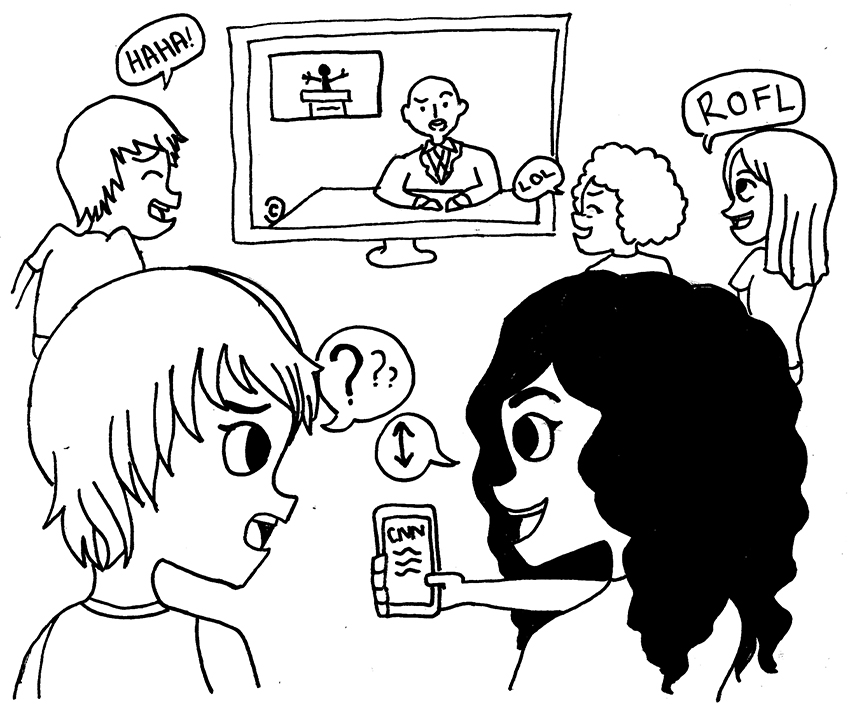Election season is in full force. Every cable news desk, radio podcast and conversation with your grandparents seems to focus on politics. Even here at school, recent student elections have captured campus conversation. With so many campaigns and opinions to keep track of, being an informed participant of the democratic process can be difficult. Political satire offers a compelling place to start.
Ideally, we would all be well-read on political issues and ready to shoot out poll statistics at the slightest provocation, but that just isn’t realistic. Time is a college student’s scarcest resource, and spare moments are more likely to be taken up by the pursuit of food and friends than Politico and Pew.
This is where political satire comes in.
“We feel that we have so much going on in our lives that we don’t have time to fully process a topic that is so complicated as politics as well as balance everything else we are learning in school,” said Madeline Dimayuga, executive producer of Longhorn LateNight and radio-television-film junior. “But when you spin it and make that information entertaining, we retain it a lot better.”
The educational community has long known about the benefits of using humor while teaching. Learning comes from the context and delivery of information, not just the facts and statistics themselves.
“Humor is a kind of communication, and communication is very important in politics. Humor is one way of communicating effectively,” government professor David Prindle said. “It’s extremely hard to learn when you’re bored.”
These same concepts translate into politics. A Pew research poll discovered that, with 54 percent in the “high knowledge group,” audiences of comedy news shows were just as well-informed as those of major newspaper websites.
Educational principles lend themselves to comedy quite naturally. Political comedy requires an intimate knowledge with the actual, real-life facts — so as to better satirize their subject. In between comedians packing their punches, the audience gets compact doses of very real information. In setting up their jokes, most satirists utilize actual video clips of their subjects, or at least cite verifiable news events. Even the punches themselves have value. A comedian adds counter arguments and points out flaws in his or her chosen victim’s views.
John Oliver’s viral “Donald Drumpf” segment of “Last Week Tonight” used comedy to force a closer look at the Republican presidential frontrunner. Oliver relentlessly and hilariously examined the track record of the “litigious serial liar with a string of broken business ventures and the support of a former Klan leader.” Oliver’s critique, while entertaining, offered snippets of very real information that could inform and influence a voter.
While you probably shouldn’t cite John Oliver on your next political science paper, these comedic forays offer the kind of basic information necessary to be an informed voter. Laughing at your news is a serious way to stay informed and not sleep through the polls.
Hallas is a Plan II freshman from Allen. She is a senior columinst. Follow her on Twitter @LauraHallas.





















